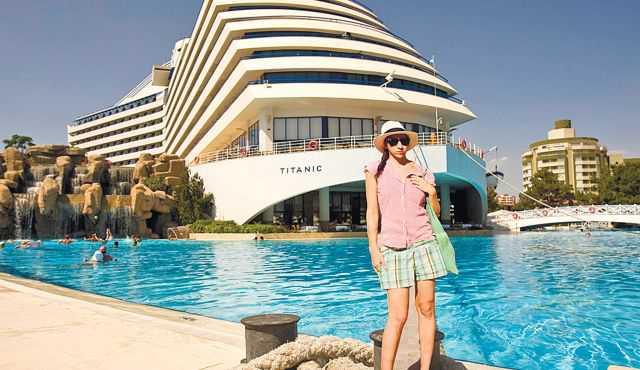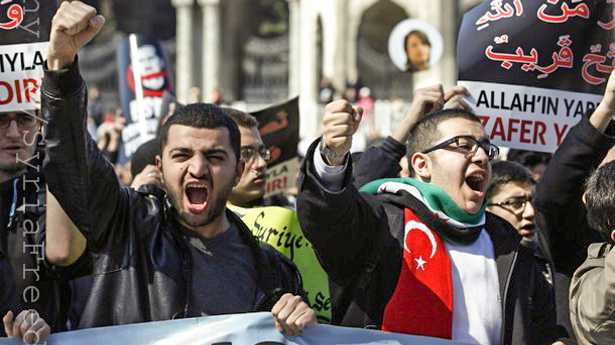Turkey rises again as a leading resort destination for Israelis
Turkish airline and charter companies have ramped up their number of flights to and from Israel and are preparing to expand service to resort destinations.
By Zohar Blumenkrantz | Apr.03, 2013 | 3:05 AM | 1

An Antalya resort. Photo by David Bachar
THIS STORY IS BY
Zohar Blumenkrantz
RELATED TAGS
Israel business news
Israel Turkey
RELATED ARTICLES
Israeli, Turkish officials to meet April 12 for talks over compensation to flotilla victims’ families
By Haaretz | Apr.03,2013 | 3:05 AM | 30
Interest among Israelis in vacation getaways to Turkey more than quadrupled during Passover week, sparked by a thaw in nearly three years of chilly relations between Jerusalem and Ankara, according to the Travelist website.
Turkish airline and charter companies have ramped up their number of flights to and from Israel and are preparing to expand service to resort destinations besides the traditionally popular Antalya, including Dalaman, Bodrum and Marmaris.
On Sunday, the eve of the last day of Passover, three Turkish charter flights left Ben-Gurion International Airport for Antalya, in addition to the two regular weekly charter flights on Sundays and Thursdays. Turkish charter operators, including Onur Air, Corendon Airlines and Freebird Airlines, are running 25 flights to Antalya from last Sunday until next Wednesday.
“Around 13,000 people have expressed interest in vacationing in Antalya, but due to the early stage of the thaw between Israel and Turkey, they’re still worried about booking,” said Travelist CEO Zion Madmon.
“In terms of interest expressed in vacation destinations, Antalya rose from 12th place to second place after Barcelona and ahead of Berlin, Prague, Paris and Rhodes. In terms of bookings, Antalya rose to fifth place, a 250% jump from last year and similar to Rhodes.”
According to Shai Pardo, chief executive of KTA International, which represents Turkish charter operators in Israel, “I’m pleased with the news, as is Israel’s entire airline and tourism industry. I hope the normalization of diplomatic relations between Israel and Turkey will restore normal tourism relations.”
Pardo is gearing up to add flights to holiday destinations Israelis once frequented besides Antalya. “Most travelers during the Passover period will be Jewish, but trips are also in the cards for the Arab community during their Muslim holiday,” he said.
The number of passengers traveling between Israel and Turkey rose 58.6% to 85,200 in January and February compared with the same period last year, according to the Israel Airports Authority. In 2012, 687,100 passengers flew between Ben-Gurion and Turkey, 18% more than in 2011.
Meanwhile, the Shin Bet security service is revisiting its policy for safeguarding Israeli airlines in Turkey following Arkia’s request to reinstate flights to Antalya. This began before the normalization was declared.Israeli airlines stopped flying to Turkey amid plummeting demand following the Mavi Marmara flotilla incident in 2010 and differences between the two countries over security arrangements.
via Turkey rises again as a leading resort destination for Israelis – Business – Israel News | Haaretz Daily Newspaper.





